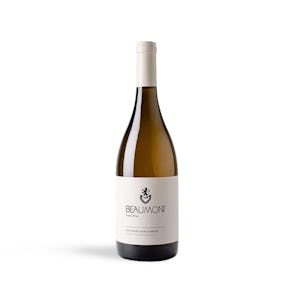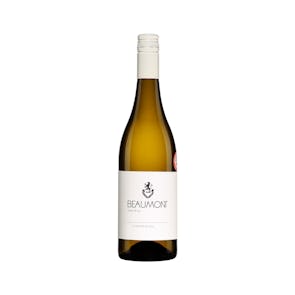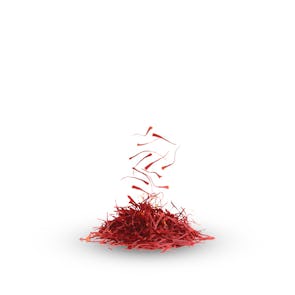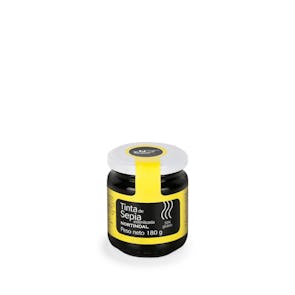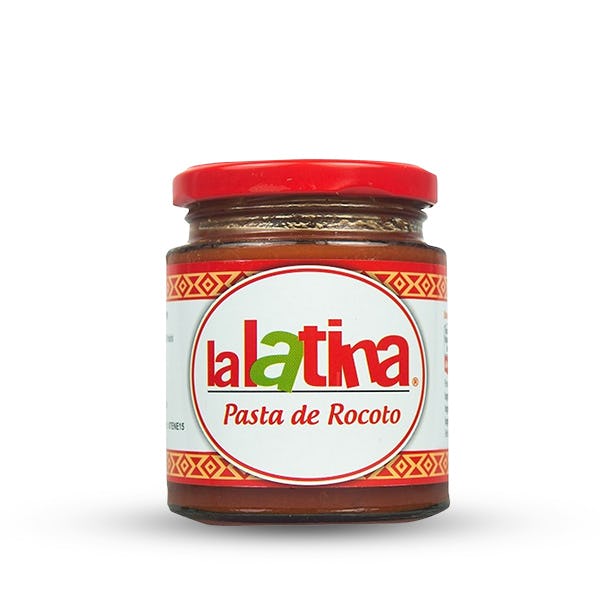
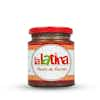
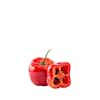
TASTING NOTES FROM THE CURATOR
Aji rocoto looks very similar to small red bell peppers or roma tomatoes. It has a beautiful red outside, and black seeds inside. Its appearance can be deceiving, as very unlike regular bell peppers, this one has heat.
The spice levels can vary per pepper, but they’re all generally moderate to hot level. The sweet, fruity, grassy notes in its flavor tempers out the sting that usual spicy peppers have.
At 30,000 to 100,000 Scoville heat units (SHU) the rocoto can be anywhere from four to forty times hotter than our jalapeño reference point. It’s much hotter than its close cousin, the manzano chili (12,000 to 30,000 SHU), so while these two peppers share a similar look, note you could be in for a spicy surprise.
PREPARATION
Our aji rocoto comes in two variations: as a paste, and as whole IQF (individually quick-frozen) peppers.
The paste can be used in a wide variety of ways. Drizzle it over your tacos and pizza. Or use it as a sauce for your steak, and roast or grilled chicken. Mix it with some mayonnaise to level up your hamburgers and sandwiches.
When whole, you can make a Peruvian dish called rocoto relleno, which is peppers stuffed with a mixture of chopped beef, herbs, peanuts, and egg.
The rule of thumb to reduce the aggressive heat of the pepper is to boil it in water and sugar three times, changing the water-sugar every time. Make sure to de-seed the peppers carefully before boiling as skin contact may sting. Also, fair warning: the first boil will fill your kitchen with spiciness, making it difficult to breathe. This is normal. By the third boil, you’ll be able to breathe better, and that’s how you know the peppers are ready to use.
A SPICE FOR THE AGES
Aji rocoto has been cultivated for at least 5000 years, dating back to the ancient civilizations of the Andes mountains in Chile, Peru, and Argentina. They are usually grown in high elevation, and are primarily cultivated in South America.
They are also rife with health benefits. Aji rocoto is a great source of potassium, folic acid, calcium, vitamin A, vitamin E, and vitamin C. It contains antioxidants that build collagen and boost the immune system. It also contains capsaicin, a chemical compound that triggers the brain’s acknowledgement of spice or heat, and has been shown to have anti-inflammatory properties.
Storage Instructions
Keep your paste in a cool, dark, and dry area, like your pantry. It will retain its highest quality for about 6 months. Once opened, it will last longer in the refrigerator, about a year.
For IQF peppers, store in the freezer immediately upon receipt if not using immediately. Consume within 6 months as they will start to lose quality and flavor.


